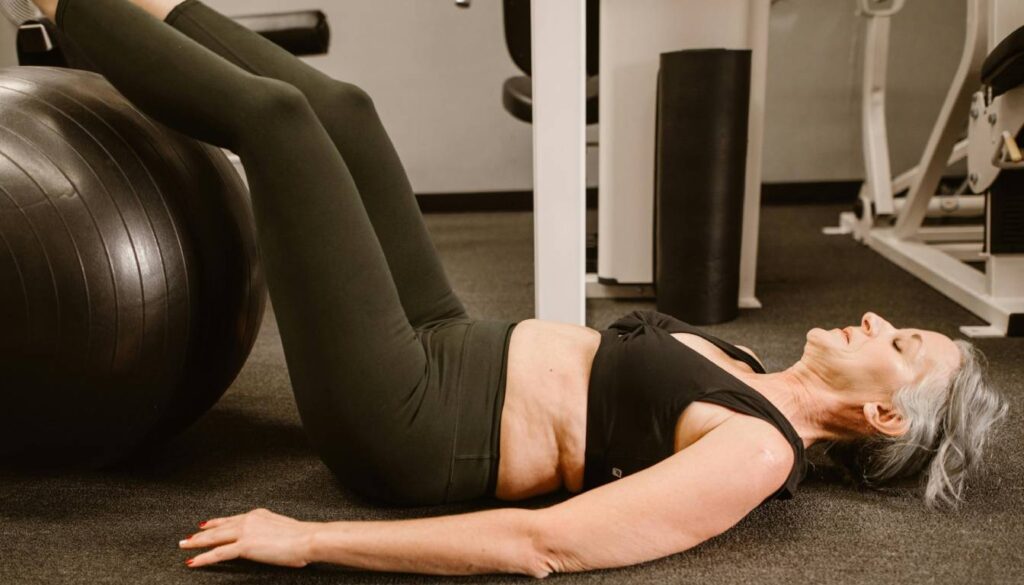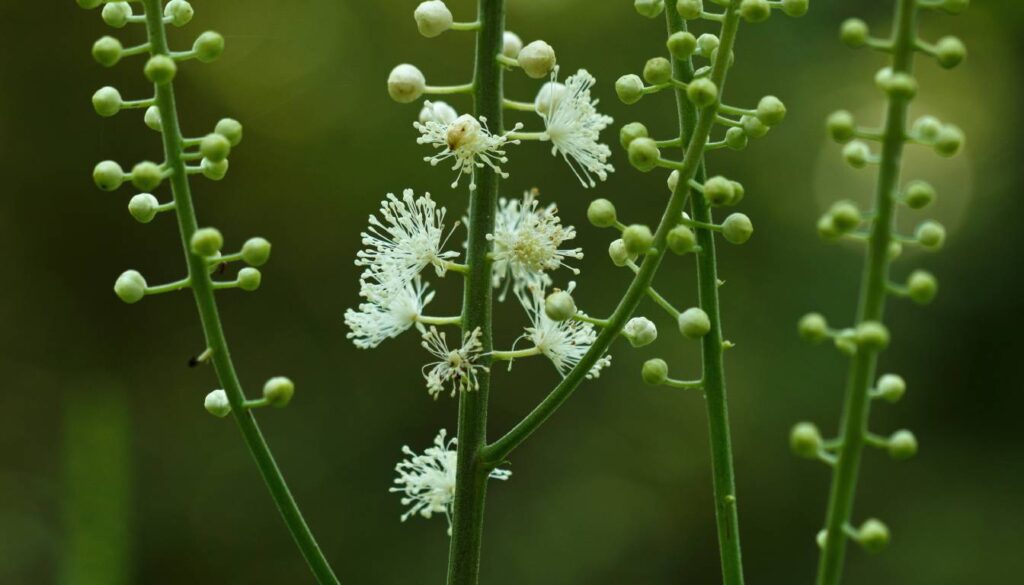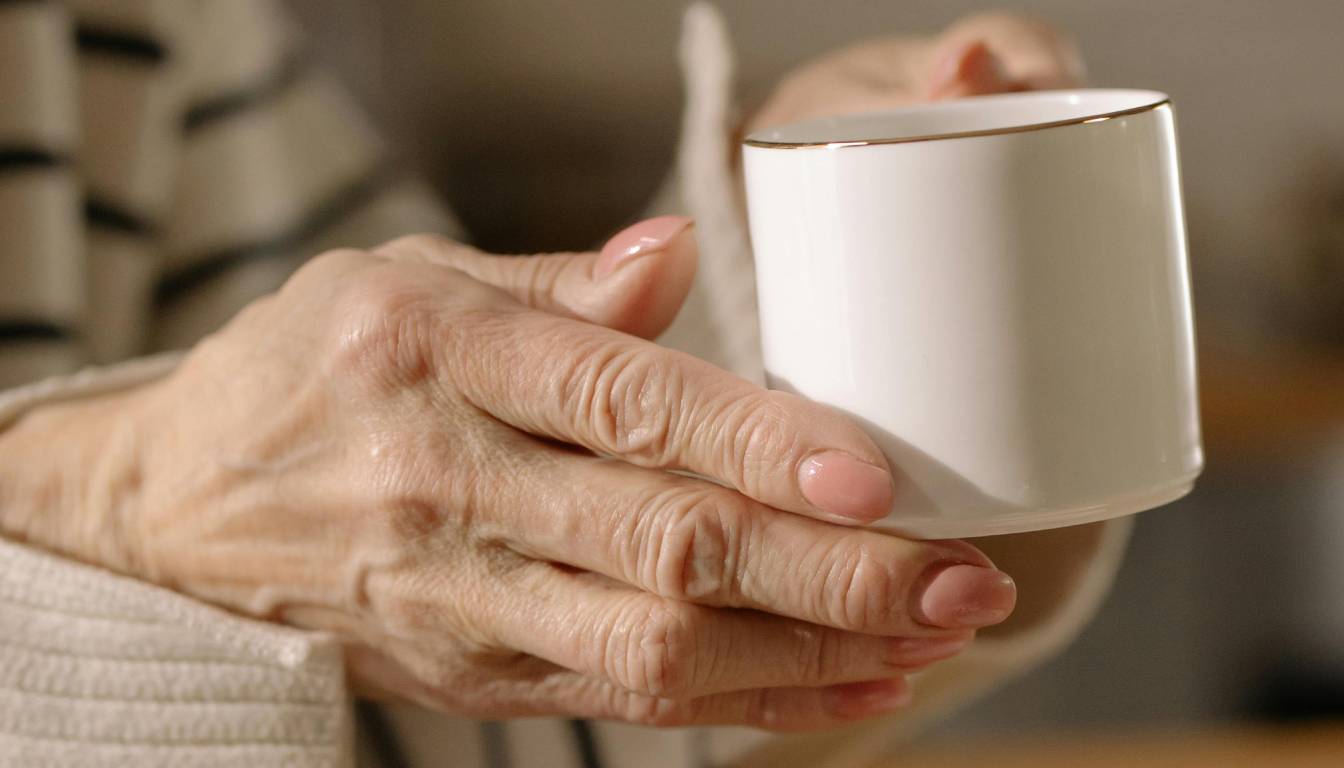Menopause is a natural biological event that signifies the cessation of a woman’s fertility period. Although it’s a standard part of the ageing process, managing the symptoms can be difficult. The symptoms of menopause can differ among women and may encompass hot flashes, night sweats, mood fluctuations, vaginal dryness, and sleep disruptions. Hormone replacement therapy (HRT) is a prevalent treatment choice, but it’s not the sole option. A considerable number of women resort to herbs for menopause relief.
There are several herbs that are commonly used to manage menopausal symptoms. Black cohosh, red clover, and dong quai are among the most popular. These herbs have been used for centuries to treat a variety of health conditions, including menopause. While more research is needed to fully understand the effects of these herbs, many women report that they are effective at managing their symptoms.
Types of Herbs for Menopause
When a woman approaches menopause, her body undergoes significant changes, which can result in various symptoms such as hot flashes, night sweats, mood swings, and vaginal dryness. While there are several treatments available, many women prefer using natural remedies such as herbs to manage their symptoms. In this section, I will discuss some of the most popular herbs for menopause.
Black Cohosh – Herb for Menopause
Black cohosh is a popular herb used to alleviate hot flashes, night sweats, and mood swings. It contains phytoestrogens that mimic the effects of estrogen in the body, which can help regulate hormone levels. Several studies have shown that black cohosh can be effective in reducing the frequency and severity of hot flashes and other menopausal symptoms.
Chaste Tree
Chaste tree, also known as Vitex, is another herb commonly used for menopause symptoms. It works by regulating the pituitary gland, which controls hormone production in the body. Chaste trees can help reduce hot flashes, mood swings, and other symptoms associated with menopause.
Evening Primrose Oil – Herb for Menopause
Evening primrose oil is extracted from the seeds of the evening primrose plant. It contains gamma-linolenic acid (GLA), which is an omega-6 fatty acid that can help reduce inflammation in the body. Many women use evening primrose oil to alleviate breast tenderness, mood swings, and other menopausal symptoms.
Dong Quai
Dong Quai is a traditional Chinese herb that has been used for centuries to treat menopause symptoms. It contains phytoestrogens that can help regulate hormone levels in the body. Dong quai is commonly used to alleviate hot flashes, vaginal dryness, and other symptoms associated with menopause.
Red Clover – Herb for Menopause
Red clover is a plant that contains phytoestrogens, which can help regulate hormone levels in the body. People commonly use red clover to get relief from hot flashes, night sweats, and other menopausal symptoms. It’s like a natural cooling system! Several studies have shown that red clover can be effective in reducing the frequency and severity of hot flashes.
Maca
Maca is a root vegetable that grows in the Andes Mountains of Peru. It is often used as a natural remedy for menopause symptoms. Maca contains phytoestrogens and other compounds that can help regulate hormone levels in the body. Many women use maca to alleviate hot flashes, night sweats, and other menopausal symptoms.
Soy – Herb for Menopause
Soy is a plant that contains phytoestrogens, which can help regulate hormone levels in the body. Many women use soy to alleviate hot flashes, night sweats, and other menopausal symptoms. However, the effectiveness of soy for menopause symptoms is still debated, and more research is needed.
Flax Seeds
Flax seeds are a good source of lignans, which are compounds that can help regulate hormone levels in the body. Many women use flax seeds to alleviate hot flashes, night sweats, and other menopausal symptoms. However, more research is needed to determine the effectiveness of flax seeds for menopause symptoms.
Ginseng – Herb for Menopause
Ginseng is a popular herb that is often used to boost energy levels and reduce stress. It can also help alleviate hot flashes and other menopausal symptoms. However, more research is needed to determine the effectiveness of ginseng for menopause symptoms.
Valerian
Valerian is an herb that is often used as a natural remedy for anxiety and insomnia. Many women use valerian to alleviate sleep disturbances and other menopausal symptoms.
Chasteberry – Herb for Menopause
Chasteberry, also known as Vitex, is another herb commonly used for menopause symptoms. It works by regulating the pituitary gland, which controls hormone production in the body. Chasteberry can help reduce hot flashes, mood swings, and other symptoms associated with menopause.
Several herbs can help alleviate menopause symptoms. However, it is essential to speak with a healthcare provider before using any herbal supplement or remedy. Some herbs may interact with medications or have side effects.
Benefits of Herbs for Menopause

As a woman ages, her body undergoes natural changes that cause a decline in reproductive hormone production, leading to the end of menstrual cycles. This transition is known as menopause and can cause a variety of physical and emotional symptoms that can be difficult to manage. Fortunately, there are many herbs and supplements that can help alleviate the symptoms of menopause and improve overall quality of life.
Managing Hot Flashes and Night Sweats – Herb for Menopause
Hot flashes and night sweats are common symptoms of menopause that can be uncomfortable and disruptive to daily life. Certain herbs, such as black cohosh and red clover, have been shown to help manage these vasomotor symptoms by regulating body temperature and reducing the frequency and intensity of hot flashes and night sweats.
Improving Mood and Reducing Fatigue and Insomnia
Menopausal symptoms can also include mood swings, anxiety, depression, fatigue, and sleep disturbances. Herbs like St. John’s wort and valerian root can help improve mood and reduce feelings of anxiety and depression, while also promoting restful sleep to combat insomnia and fatigue.
Addressing Vaginal Changes – Herb for Menopause
Vaginal dryness and other changes in vaginal health are common during menopause and can cause discomfort and pain during sexual activity. Herbs like dong quai and ginseng can help improve vaginal lubrication and overall vaginal health, reducing discomfort and improving sexual function.
Boosting Libido
Decreased sex drive is another common symptom of menopause that can be distressing for many women. Herbs like damiana and maca root can help boost libido and improve overall sexual function, leading to a more satisfying sex life.
Glossary of Herbal Supplements – Herb for Menopause
Here are some of the most commonly used herbs and supplements for menopause and their potential benefits:
| Herb/Supplement | Potential Benefits |
|---|---|
| Black cohosh | Reduces hot flashes and night sweats |
| Red clover | Reduces hot flashes and night sweats |
| St. John’s wort | Improves mood and reduces anxiety and depression |
| Valerian root | Promotes restful sleep and reduces fatigue |
| Dong quai | Improves vaginal lubrication and overall vaginal health |
| Ginseng | Improves vaginal lubrication and overall vaginal health |
| Damiana | Boosts libido and sexual function |
| Maca root | Boosts libido and sexual function |
Overall, herbs and supplements can be a natural and effective way to manage the symptoms of menopause and improve hormonal balance, emotional well-being, and overall quality of life. However, it’s important to talk to your doctor before starting any new supplement regimen to ensure that it’s safe and appropriate for you.
How to Choose the Right Herbs for Menopause
Consult with a Healthcare Professional
Before taking any supplement or herb, it is important to consult with a healthcare professional. They can evaluate your symptoms and needs, and advise you on the best course of action. They can also recommend reputable brands and sources for herbs and supplements.
Consider Individual Symptoms and Needs
Different herbs and supplements may be more effective for specific symptoms. For example, black cohosh may help alleviate hot flashes, while valerian root may help with insomnia. It is important to consider your symptoms and needs when choosing herbs for menopause.
Research Reputable Brands and Sources
When selecting herbs and supplements, it is important to research reputable brands and sources. Look for products that have been tested for purity and safety, and avoid brands that make exaggerated or false claims. Additionally, it can be helpful to read reviews from other women who have used the product.
Follow Recommended Dosage Instructions
It is important to follow recommended dosage instructions for herbs and supplements. Taking too much of a supplement can be harmful, and taking too little may not provide any benefit. Additionally, it is important to note that herbal supplements are not regulated by the FDA, and may interact with prescription medications or other supplements.
By following these tips, you can make informed decisions when choosing herbs for menopause. Always remember to prioritize safety and consult with a healthcare professional before starting any new supplement or herb regimen.
Before You Go – Herb for Menopause

Herbal remedies can be an effective solution for managing menopausal symptoms. Incorporating herbs such as sage, passionflower, and ashwagandha into one’s diet can help alleviate symptoms such as hot flashes, mood swings, and headaches.
It is important to note that not all herbs are safe for everyone, and some can interact with medications or exacerbate certain conditions. For example, women who are pregnant or breastfeeding should avoid using certain herbs such as black cohosh and dong quai. Additionally, women with liver disease or a history of breast cancer should consult with their healthcare provider before using certain herbs.
Isoflavones found in soybeans and lignans found in flaxseed have been shown to mimic the effects of estrogen in the body, making them a popular choice for women experiencing hormonal imbalances. However, it is important to note that these compounds may not be effective for everyone and can have adverse effects in some individuals.
Traditional Chinese medicine has also been used to alleviate menopausal symptoms, with herbs such as angelica sinensis and cimicifuga racemosa being commonly used. Adaptogenic herbs such as ashwagandha can also help the body cope with stress and improve overall strength and vitality.
In addition to incorporating herbs into one’s diet, lifestyle changes such as regular exercise, a balanced diet rich in calcium and vitamin D, and stress management techniques can also help alleviate symptoms and prevent bone loss. Women experiencing perimenopause or postmenopausal symptoms should consult with their healthcare provider to determine the best course of treatment for their individual needs.
Herb for Menopause: A Herbalist’s Guide
Herbs for menopause are a fantastic way to manage this natural transition. They’re safe, effective, and all-natural!
Let’s explore how these herbs and our home page at theherbprof.com can complement each other!
References – Herb for Menopause
Little Herb Encyclopedia, by Jack Ritchason; N.D., Woodland Publishing Incorporated, 1995
The Ultimate Healing System, Course Manual, Copyright 1985, Don Lepore
Planetary Herbology, Michael Tierra, C.A., N.D., Lotus Press, 1988
Handbook of Medicinal Herbs, by James A. Duke, Pub. CRP Second Edition 2007
The Complete Medicinal Herbal, by Penelope Ody, Published by Dorling Kindersley
Check the Following Articles!
Home Remedies for Red Eyes: Soothe Eye Irritation Now!
Herbalist Tinctures: The Ultra Guide On Uses and Benefits
Natural Antibiotics for Cats: Top Alternatives Treatment
Frequently Asked Questions – Herb for Menopause
1. What are some natural remedies for hot flashes?
Hot flashes are a common symptom of menopause, but several natural remedies can help alleviate them. Some of these remedies include:
- Dressing in layers to easily remove clothing when experiencing a hot flash
- Staying hydrated and drinking cold water when experiencing a hot flash
- Avoiding spicy foods, caffeine, and alcohol
- Practicing relaxation techniques, such as deep breathing and meditation
2. What are the best herbs for menopause?
Several herbs have been traditionally used to treat menopause symptoms. Some of the best herbs for menopause include:
- Black cohosh: This herb has been shown to help alleviate hot flashes and night sweats.
- Red clover: This herb contains phytoestrogens that can help regulate hormone levels and alleviate hot flashes.
- Dong quai: This herb has been used in traditional Chinese medicine to treat menopause symptoms, including hot flashes and vaginal dryness.
3. How can I manage menopause symptoms without hormones?
While hormone replacement therapy (HRT) can be an effective treatment for menopause symptoms, many women prefer to manage their symptoms without hormones. Some ways to manage menopause symptoms without hormones include:
- Making lifestyle changes, such as eating a healthy diet, exercising regularly, and getting enough sleep
- Practicing relaxation techniques, such as deep breathing and meditation
- Trying natural remedies, such as herbal supplements and acupuncture
- Using over-the-counter treatments, such as vaginal lubricants and moisturizers
4. What are some ancient remedies for menopause?
Traditional medicine has been used for centuries to treat menopause symptoms. Some ancient remedies for menopause include:
- Ayurvedic medicine: This traditional Indian medicine uses herbs and other natural remedies to treat menopause symptoms.
- Traditional Chinese medicine: This practice uses acupuncture and herbal remedies to balance the body’s energy and alleviate menopause symptoms.
- Native American medicine: This practice uses herbs and other natural remedies to treat menopause symptoms, including hot flashes and night sweats.
5. What are some natural supplements for menopause?
Several natural supplements can help alleviate menopause symptoms. Some of the most popular natural supplements for menopause include:
- Black cohosh: This herb has been shown to help alleviate hot flashes and night sweats.
- Red clover: This herb contains phytoestrogens that can help regulate hormone levels and alleviate hot flashes.
- Soy: Soy contains phytoestrogens that can help alleviate menopause symptoms.
6. How can I naturally reduce menopause anxiety?
Menopause can cause anxiety and mood swings, but several natural remedies can help reduce these symptoms. Some ways to naturally reduce menopause anxiety include:
- Practicing relaxation techniques, such as deep breathing and meditation
- Getting regular exercise, which can help boost mood and reduce anxiety
- Trying natural remedies, such as herbal supplements and aromatherapy
- Talking to a therapist or counsellor about your feelings and concerns

